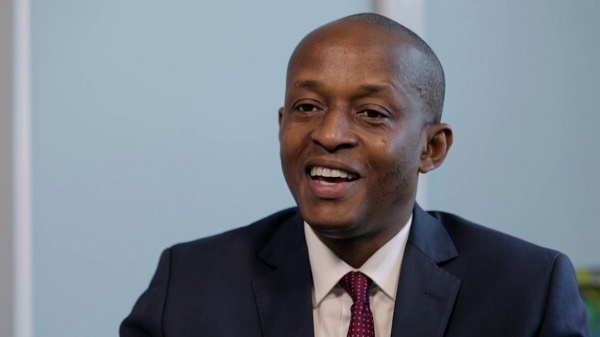Country Senior Partner at PricewaterhouseCoopers (PwC) Ghana, Vish Ashiagbor, has called on government to maintain its resolve on the implementation of the expenditure cuts identified, as well as revenue measures that have been approved as part of the 2022 Budget.
In its 2022 budget statement, government committed to fast-paced fiscal consolidation and sustainable growth through the implementation of revenue mobilisation initiatives, as well as expenditure rationalisation.
Earlier this year, in response to tightening macroeconomic conditions, the government outlined a number of measures such as an additional 10 percent cut of discretionary spending; a 50 percent cut in fuel coupon allocations for all political appointees and heads of government institutions, including State Owned Enterprises (SOEs), effective at the beginning of the second quarter, that is, April 1.
Additionally, a 30 percent cut from salaries of ministers and the heads of SOEs from April to December 2022 was earmarked to be lodged in the Consolidated Fund.
These measures were aimed at saving the Treasury about GH¢3.5billion; and the government, in the mid-year budget review, reaffirmed these commitments amid revisions of various targets in order to moderate the planned pace of growth and fiscal consolidation.
Commenting on the mid-year budget, the Senior Partner said: “Overall, the mid-year review indicates clearly where the current challenges lie for the Ghanaian economy. These are not new challenges – revenue generation continues to require additional impetus, as does an overall rebalancing of our expenditure profile, which has resulted in the current debt burden”.
For 2022, he noted that the measures and revised budgets outlined in the mid-year review look achievable, mainly due to increased global oil prices.
The PwC Senior Partner added that conversations must begin on the medium to long-term plan for dealing with the fundamental challenges of the economy, with an eye on recovery.
He was optimistic that the anticipated Enhanced Domestic Programme from engagements with the International Monetary Fund (IMF) will augment existing domestic programmes.
“The Ghana CARES programme sets out the government’s plan for the transformation of the economy. An Enhanced Domestic Programme, which we understand that government is currently developing, will complement the Ghana CARES Programme. These will form the basis of discussion and ultimately, agreement with the IMF on a medium-term road map, and the IMF’s support to Ghana’s economy,” Mr. Ashiagbor said.
Revised notes
At the mid-year review, the fiscal authorities revised downward the initially projected expenditure for 2022 to GH¢133.8billion from GH¢135.6billion.
The downward revision will predominantly impact funds for Goods and Services, as well as Grants to Other Government Units. The former is projected to reduce from GH¢9.1billion to GH¢5.8billion, an estimated 35 percent decline relative to the initial Budget, while the latter will shrink by 12 percent, from GH¢26.8billion to GH¢23.6billion.
Conversely, interest payments should see a hike from GH¢37.4billion to GH¢41.3billion, accounting for 31 percent of the total revised projected expenditure and 43 percent of revised budgeted revenue and grants for 2022.
The previous revenue and grants target of GH¢100.5billion for the current fiscal year has seen a 3.7 percent decrease, with GH¢96.8billion currently in view. This, however, still translates into a growth target of 37 percent compared to the GH¢70.9billion from the previous year.
The revised target is expected to be achieved mainly as a result of the windfall in revenue from oil production and exports, a result of increased global oil prices. This will help to significantly offset shortfalls from other revenue sources, particularly tax revenues.
“While the benefit of increased global oil prices has helped to support the Budget in the short term, the fundamental and perennial challenge around revenue mobilisation, and the need to significantly improve our tax to GDP ratio persist and still needs to be confronted. This, in our view, continues to be the driver for the additional revenue measures,” Mr. Ashiagbor highlighted.










